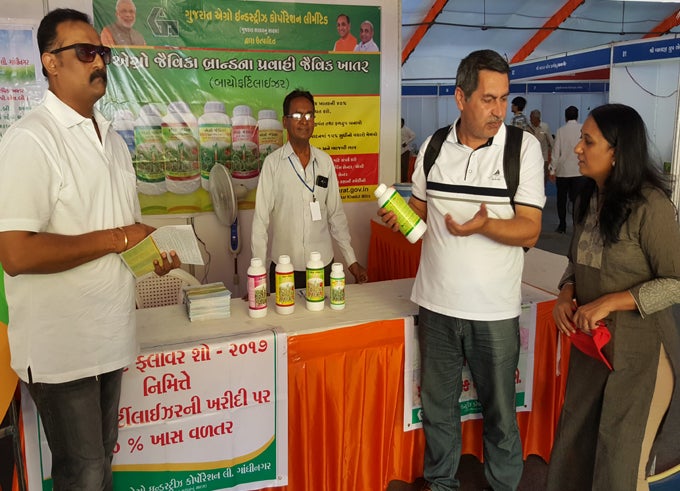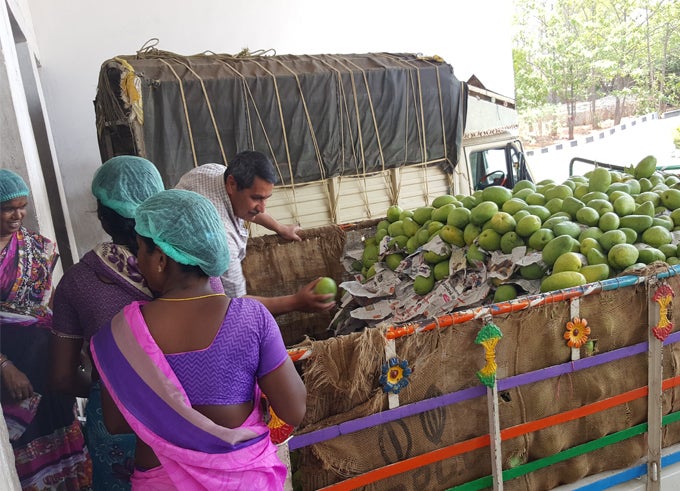I have always believed that communities are like musical instruments. You need to tune them properly to hear their divine music. I actually heard this music from rural communities in India. And their song, which still resonates within me, is something I will now take back to my own country.
In May 2017, my colleagues and I from the World Bank’s Azerbaijan Rural Investment Project were on an exposure visit to India to see firsthand how self help groups and cooperatives were impacting the lives of rural people.

In my years of work in rural development, I have found that the unique feature we as human beings have is the ability to share skills, values and experiences. As we travelled across six states, this proved to be true in all the people we met, be it in large commercial companies or in remote rural communities.
The people told us that transparency and honesty were an essential factor in their success. I also found that the spirit of cooperation was clearly present. Cooperatives belong to all members, they said, and the managers were there to serve the members. The leaders of self help groups, producer organizations, cooperatives, and micro enterprise groups also told us that they must be party to the risk taken by the group, and should lead by example in order to motivate others.

Some of our major realizations were:
- When people achieve success as a group, it is always more profitable and sustainable than when just one individual does so.
- Groups can share the risks inherent in an enterprise and, by doing so, can reduce the risk for individual members.
- The needs of individual members can be turned into a group enterprise, or vice versa. For example, in Kerala the Kudumbashree SHG movement has trained its members to help aging parents whose children live away from home. With the help of doctors the team now pays regular house visits and carries out routine medical tests for cholestrol, blood pressure, cancer detection etc., while getting paid for the service.
- The social values established among the group are the bedrock for group activities. What or how they produce is not as important as the fact that common interests are identified and decisions taken jointly.
- Sustainability of the group is directly proportional to the contribution of each member. A strong group will be in a position to represent the interests of its members and can protect them from risks and threats.
- Self-help groups that act as informal groups in the first phase of their development could later become the foundation for cooperatives. Such groups (official, or non-official) can be effective in helping implement the government’s programs for rural development.

After the visit, I am actively considering expediting the development of self-help groups and micro enterprise groups in rural communities in Azerbaijan. This is primarily because most products produced in rural communities are presently not market-oriented and are suitable only for domestic consumption. I would now consider the following:
- Azerbaijan, for instance, produces an abundance of wild berry products, handicrafts, and woolen goods. The country also has great potential for promoting tourism in its mountainous regions by creating home stays for tourists at appropriate places. Developing self-help groups around these and other activities will help communities produce goods for the tourist market, generating an income for community members.
- While the demand for organic products is very high, many rural communities whose products are very natural and close to organic do not benefit from this market opportunity. In areas where traditional food production practices are close to natural, we propose to organize producer groups and provide them with necessary technical support to link them to markets.
- We plan to develop regional associations of community-based livelihoods enterprises. Seven incubators in the southern region of Azerbaijan will initially operate as an informal association and will later function as an official entity. The association will initially provide relatively low-cost services to its members, which will make their products competitive in the market.

India’s multi-year experience with rural communities, which we managed to obtain in just two weeks, will now help us guide the development of rural Azerbaijan.


Join the Conversation